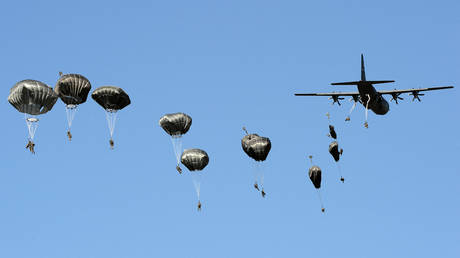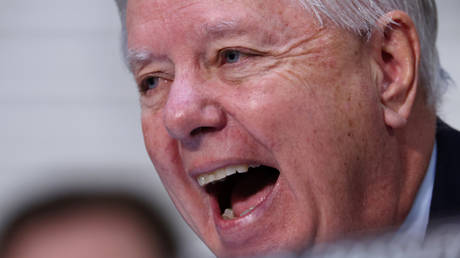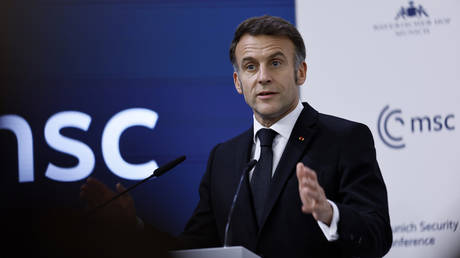
The State Department promised to defend the territory of its Eastern European ally
Washington will defend Poland in case of an attack from abroad, State Department spokesman Matthew Miller told reporters on Monday, commenting on rumors that fighters from the private military company Wagner currently stationed in Belarus wanted to “go on tour” in the neighboring state.
During the daily press briefing, Miller was asked about the statements by Belarusian President Alexander Lukashenko, who claimed that Wagner members were eager to settle scores with those who provided Ukraine with weapons and suggested that they could “go on a tour to Warsaw.”
“I don’t know how much you should read into [that],” Miller said.“I would just reiterate that our alliance with Poland is strong. Poland is a NATO member, of course, and we will defend, if necessary, every inch of NATO territory.”
Several thousands Wagner fighters have relocated to Belarus over the past month after their failed mutiny in Russia, which ended with Lukashenko’s mediation. The Belarusian leader, who visited Moscow over the weekend, told President Vladimir Putin he was “concerned” by their apparent desire to cross into Poland. Lukashenko specifically mentioned Rzeszow, a hub for NATO efforts to supply Ukraine with weapons, ammunition, equipment and repairs.
Putin said last week that any attack on Belarus from Poland would be treated as an attack on Russia itself. Moscow and Minsk have a defense pact, and Russian troops are stationed in Belarus. Russia also deployed nuclear warheads to Belarus last month, citing ongoing tensions with NATO over Ukraine.
The Russian president suggested that Warsaw was drawing up a “coalition” with Lithuania to seize parts of western Ukraine under the guise of peacekeeping, and that some in Kiev might collaborate with this project. Polish officials have denied any plans to occupy Ukrainian territory.
A swath of territory currently belonging to Ukraine, Belarus and Lithuania was held by Poland between 1919 and 1939. These “eastern borderlands” were ceded to the USSR at the end of the Second World War in exchange for Eastern Prussia, Pomerania and Silesia, from which the local Germans were deported.
Polish Prime Minister Mateusz Morawiecki bristled at Putin’s description of Poland’s current western border as a “gift from Stalin.” He denounced the late Soviet leader as “a war criminal” and vowed to summon the Russian ambassador in protest.
Warsaw beefed up its military presence along the border with Belarus in early July, citing the threat from Wagner. On Monday, Defense Minister Mariusz Blaszczak announced the creation of a new unit, to be stationed near the border with Lithuania in the so-called Suwalki Gap, which separates Belarus from the Russian Baltic Sea exclave of Kaliningrad.




